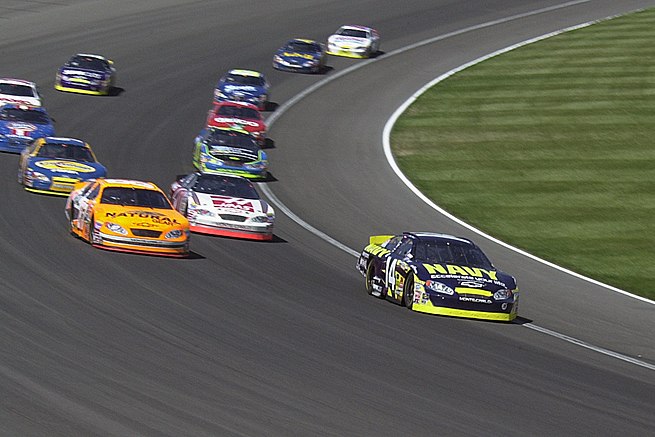Main Difference
The main difference between Velocity and Acceleration is that the Velocity is a rate of change of the position of an object as a function of time, and the direction of that change and Acceleration is a rate at which the velocity of a body changes with time, and the direction in which that change is acting.
-
Velocity
The velocity of an object is the rate of change of its position with respect to a frame of reference, and is a function of time. Velocity is equivalent to a specification of an object’s speed and direction of motion (e.g. 60 km/h to the north). Velocity is a fundamental concept in kinematics, the branch of classical mechanics that describes the motion of bodies.
Velocity is a physical vector quantity; both magnitude and direction are needed to define it. The scalar absolute value (magnitude) of velocity is called speed, being a coherent derived unit whose quantity is measured in the SI (metric system) as metres per second (m/s) or as the SI base unit of (m⋅s−1). For example, “5 metres per second” is a scalar, whereas “5 metres per second east” is a vector. If there is a change in speed, direction or both, then the object has a changing velocity and is said to be undergoing an acceleration.
-
Acceleration
In physics, acceleration is the rate of change of velocity of an object with respect to time. An object’s acceleration is the net result of any and all forces acting on the object, as described by Newton’s Second Law. The SI unit for acceleration is metre per second squared (m s−2). Accelerations are vector quantities (they have magnitude and direction) and add according to the parallelogram law. As a vector, the calculated net force is equal to the product of the object’s mass (a scalar quantity) and its acceleration.
For example, when a car starts from a standstill (zero relative velocity) and travels in a straight line at increasing speeds, it is accelerating in the direction of travel. If the car turns, an acceleration occurs toward the new direction. In this example, we can call the forward acceleration of the car a “linear acceleration”, which passengers in the car might experience as a force pushing them back into their seats. When changing direction, we might call this “non-linear acceleration”, which passengers might experience as a sideways force. If the speed of the car decreases, this is an acceleration in the opposite direction from the direction of the vehicle, sometimes called deceleration. Passengers may experience deceleration as a force lifting them forwards. Mathematically, there is no separate formula for deceleration: both are changes in velocity. Each of these accelerations (linear, non-linear, deceleration) might be felt by passengers until their velocity (speed and direction) matches that of the car.
-
Velocity (noun)
A vector quantity that denotes the rate of change of position with respect to time, or a speed with the directional component.
-
Velocity (noun)
Rapidity of motion.
-
Velocity (noun)
The rate of occurrence.
-
Velocity (noun)
The number of times that an average unit of currency is spent during a specific period of time.
-
Acceleration (noun)
The act of accelerating, or the state of being accelerated; increase of motion or action; as opposed to retardation or deceleration.
“a falling body moves toward the earth with an acceleration of velocity”
-
Acceleration (noun)
The amount by which a speed or velocity increases (and so a scalar quantity or a vector quantity).
“The boosters produce an acceleration of 20 metres per second per second.”
-
Acceleration (noun)
The change of velocity with respect to time (can include deceleration or changing direction).
-
Acceleration (noun)
The advancement of students at a rate that places them ahead of where they would be in the regular school curriculum.
-
Velocity (noun)
the speed of something in a given direction
“the velocities of the emitted particles”
-
Velocity (noun)
(in general use) speed
“the tank shot backwards at an incredible velocity”
-
Velocity (noun)
the rate at which money changes hands within an economy.

